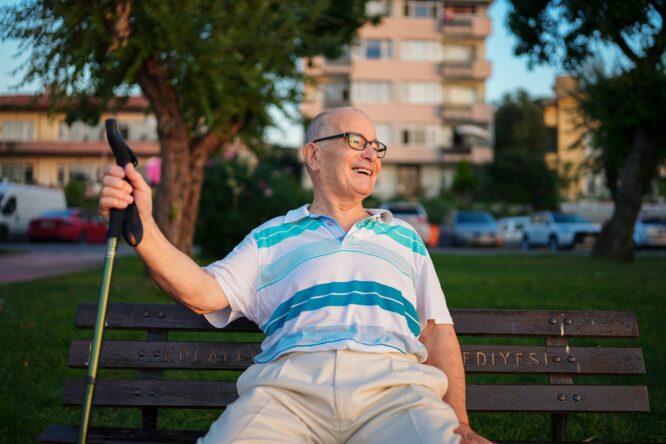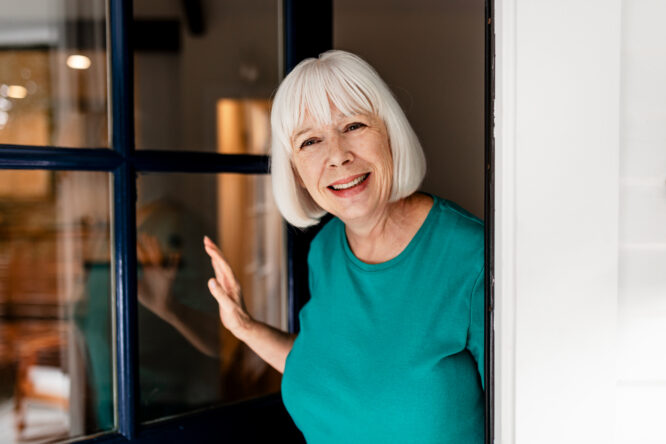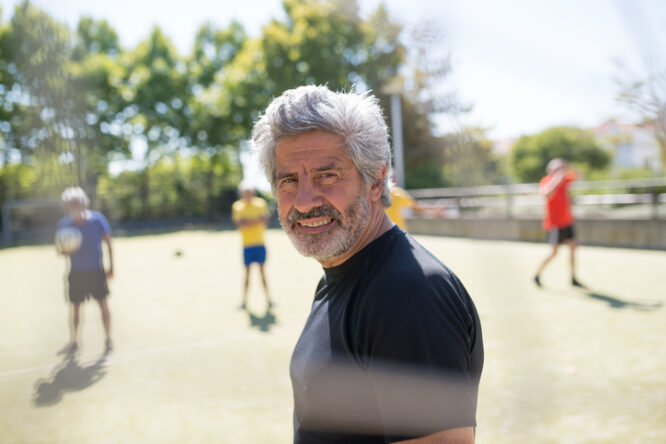There are things people tell you when you’re young that don’t fully land until you’ve been knocked around a bit.

They come after you’ve lost people, outgrown places, and let go of things you thought you couldn’t live without. These truths don’t just sound wise—they hit different when they become real. Once they do, they completely reshape how you show up in the world, how you love, and how you heal in some amazing ways.
1. Not everything needs closure.

You spend years chasing that final conversation, that perfect moment that explains it all. You want something neat to hold onto, but eventually, you learn: some people leave mid-sentence. Some doors never get properly closed. You stop needing answers to move forward. You realise that peace often comes from acceptance, not from understanding. Letting go without the ribbon-wrapped ending is its own kind of healing.
2. Peace is more important than being right.

It used to feel good to win an argument—to make your point, prove your logic, defend your side. However, as time goes on, you realise that constantly needing to be right often costs you more than it gives back. You start to notice how often the real cost is connection. Sometimes, walking away from the fight isn’t losing. It’s choosing peace over pride, and that becomes its own form of wisdom.
3. Not everyone gets to know the real you.

In your younger years, being liked meant being open. You’d bare your soul just to feel close to people. Of course, time teaches you that access to the deeper parts of you should be earned, not freely given. You don’t stop being real—you just stop being available to everyone. Your boundaries get stronger, and surprisingly, the right people respect them and stay.
4. Most people are doing the best they can with what they’ve got.

It’s easy to judge from the outside, to roll your eyes at how someone’s living or responding. However, the older you get, the more you realise how complex people are, and how pain shapes behaviour. You stop asking, “Why are they like this?” and start asking, “What shaped them to survive this way?” That change doesn’t make you naive. It makes you more humane.
5. Healing doesn’t mean forgetting.

You imagine that one day the pain will leave completely, and that healed means erased. Eventually, though, you learn that healing is just a different relationship to the memory—it still exists, it just doesn’t own you anymore. You carry the scar, but it stops aching like it used to. You learn to live beside it instead of through it.
6. Time doesn’t heal everything, but it teaches you how to live with it.

Some wounds don’t close. Some absences never stop stinging. However, with time, your capacity expands. You stretch around the ache. You find ways to laugh again, even when a part of you still hurts. It’s not that things stop mattering; it’s that you become bigger than the pain. That’s what healing really looks like: not erasure, but growth.
7. You can love someone and still need to walk away.

This one lands like a punch. You grow up believing that love is the glue, that if the love is real, you can survive anything. But real life teaches you that sometimes love isn’t enough. You can care deeply and still know something’s not sustainable. You can mourn what could have been, and still choose to leave. That’s not weakness; it’s self-respect in its bravest form.
8. Your parents are just people.

The moment this hits changes everything. You stop expecting perfection. You stop being shocked by their flaws. Hey, maybe you even find compassion where resentment used to live. It doesn’t excuse the hurt, but it puts things in perspective. They were just people—trying, failing, doing what they knew. Sometimes, that softens things more than any apology ever could.
9. Regret is part of being human.

No one gets through life without missteps: the wrong relationship, the job you stayed at too long, the silence you kept when you should’ve spoken up. These regrets aren’t proof that you failed; they’re proof that you grew. Regret means you’ve lived enough to care, to reflect, to want better. The trick is not letting it consume you. Just let it shape you, and then move on.
10. Loneliness and solitude are not the same thing.

You learn the difference the first time you choose to be alone, and it doesn’t feel like punishment. Solitude becomes sacred; a place to recharge, reflect, and reconnect with yourself on your own terms. It becomes a kind of freedom. You stop seeing your own company as a last resort. You start seeing it as a resource, and that changes everything.
11. There’s no such thing as “arriving.”

At some point, you realise that the “finish line” you imagined is a moving target. You’ll never be fully done. Not with healing. Not with learning. Not with becoming. This doesn’t make life feel hopeless; it makes it feel expansive. There’s always another version of you waiting to be uncovered, and that’s a beautiful thing.
12. Closure is something you give yourself.

You can wait years for an apology that never comes. Maybe you want a reason, or a neat goodbye. However, eventually, you realise that closure isn’t something someone hands you—it’s something you choose for yourself. You stop needing the full-circle moment. You stop waiting for people to acknowledge what they did. You give yourself the ending you never got, and with it, the freedom to move forward.
13. Comparison will steal joy every single time.

You’ve wasted hours, maybe years, measuring your life against other people’s. You wondered if you’re behind, if you missed the mark, or if you’re doing enough. However, comparison never fuels you. It just flattens everything beautiful about your own journey. Eventually, you stop looking sideways and start looking inward. That’s where joy lives. And that’s where it always was.
14. It’s okay to change your mind, especially about yourself.

You’re allowed to pivot, grow out of old opinions, and change paths without feeling like you’re betraying your past self. You’re not flaky; you’re evolving. Staying the same just to prove a point isn’t strength, anyway—it’s stagnation. Change means you’re paying attention, and that’s something to be proud of.
15. Most things don’t need fixing—they just need accepting.

You can spend your whole life trying to fix people, situations, or feelings, but eventually, you learn that not everything’s a problem to solve. Some things just need room. Understanding. Patience. Acceptance isn’t giving up. It’s releasing the illusion of control. It’s meeting life where it is, not where you wish it were. In that surrender, you finally exhale.




